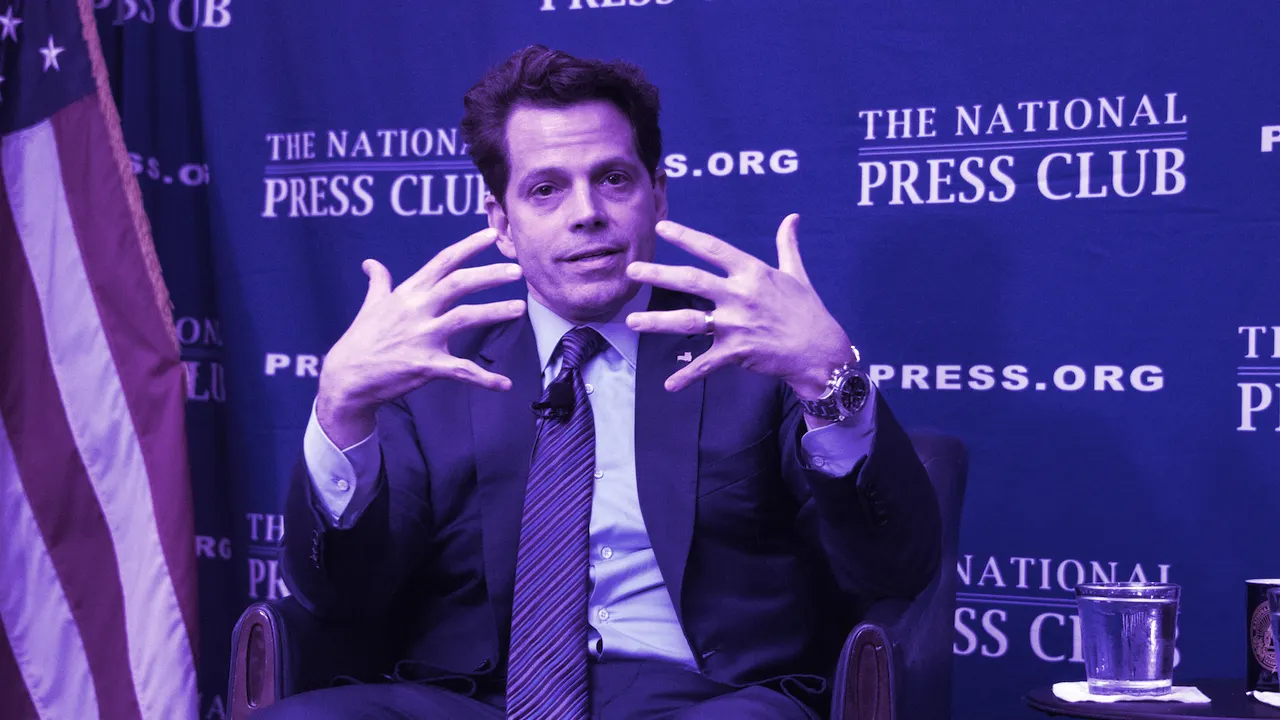SkyBridge Capital, the hedge fund of former White House communications director Anthony Scaramucci, has filed for a Bitcoin ETF with the Securities and Exchange Commission (SEC).
If successful, the SkyBridge Capital Bitcoin ETF could eat away at the appeal of the SkyBridge Capital Bitcoin Fund, which grew to a size of $370 million within weeks of its January 2021 open.
SkyBridge's Bitcoin fund, for accredited investors able to contribute at least $50,000, allows for shares to be redeemed on a quarterly basis. An ETF, or exchange-traded fund, would be far more democratic.
ETFs are investment vehicles that can be traded like stocks. They track the price of an underlying asset or group of assets. A Bitcoin ETF would, therefore, roughly align with the price of Bitcoin. In exchange for a fee, investors would get exposure to Bitcoin prices without the risks of holding and storing Bitcoin and private keys themselves.
The SEC has never yet approved a Bitcoin ETF. However, with Canadian regulators approving the country's first Bitcoin ETFs just this year, some, including Scaramucci, see the US following suit. "I do believe that this will be an approval process that happens in 2021," Scaramucci told Decrypt by phone on Friday.
Ironically, SkyBridge COO Brett Messing told Decrypt in January, after SkyBridge's Bitcoin Fund launched, that a Bitcoin ETF "will put us out of business."
"Our fund will continue on, but we won't be able to raise any capital," he said. He suggested clients would ask, "Why do I need private fund?"
But Scaramucci now says it was a matter of seeing the playing field and adjusting the game plan accordingly. "We're going to kill our private partnership business if we can get an approval from the SEC," he told Decrypt. "I think that the success of the Canadian funds will make it a little bit easier for the US regulators."
Investment firm VanEck, a near-perennial ETF applicant, likely agrees. It recently reapplied for an ETF.
The market for crypto investment vehicles has expanded as the price of Bitcoin has increased by around 10x in the last year, buoyed by institutional investments from the likes of public companies Tesla and MicroStrategy as well as institutional investors such as Galaxy Digital.
For example, the Grayscale Bitcoin Trust—an investment vehicle that tracks the price of Bitcoin but locks traders into their position for months—controls 3% of the 21 million BTC that will ever be in circulation, making it the biggest institutional holder of BTC in the world.
Bitcoin ETFs—a more retail friendly investment because they can be traded as easily and frequently as GameStop or Tesla shares—remain elusive. For now.

